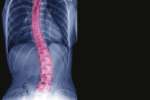Do you ever have tingling in your hand or arm? We have all experienced this on occasion, waking up with your arm or hand “asleep.” But if you are experiencing tingling on a chronic or regular basis—it could be a nerve issue. Our nerves transmit information in the form of electrical impulses all over our body at speeds of over 100 MPH. These electrical signals control muscles and allow us to feel and interact with our environment. When the nerve or path of these electrical impulses is damaged, information can slow down or be completely blocked from parts of our body. Damage to our nerves can occur from injury or disease causing us to experience numbness, tingling, muscle weakness or twitching. It is important to talk to your physician about your symptoms if they become persistent so they can determine the cause and location of the problem.
Two tests used to evaluate the nerves that lead away from the spinal cord or peripheral nervous system are electromyography (EMG) and nerve conduction studies. During an EMG a very small needle is inserted into different muscles to evaluate their response to stimulation. Muscles that are not in use should measure little or no activity. If there is electrical activity in a resting muscle it means there is something wrong with the nerves being used by that muscle. Small electrode patches are attached to the skin for a nerve conduction study, which measures the time it takes an electrical impulse to travel the length of a nerve. Slower than normal impulse speeds are an indication that damage has been caused by an injury or disease to that nerve or group of nerves.
The EMG and nerve conduction study test results along with a physical exam help your physician decide if you have a problem with your muscles, nerves or where they connect. It also helps them pinpoint where the problem lies. For example, you may be experiencing numbness in your hand. The test results can show if there if there is a pinched nerve in your arm or your neck. The results also help diagnose conditions such as carpal tunnel or nerve entrapment as well as more serious conditions like Lou Gehrig's disease or Amyotrophic lateral sclerosis (ALS).
If you are scheduled for these tests you can plan that it will take a few hours out of your day. You may be asked to stop taking certain medications that can impact the test results, be sure to discuss this with your doctor at NewSouth NeuroSpine. If you are experiencing any of the symptoms discussed you should get it checked out...it might not get better on its own. Make an appointment with one of our doctors today!






